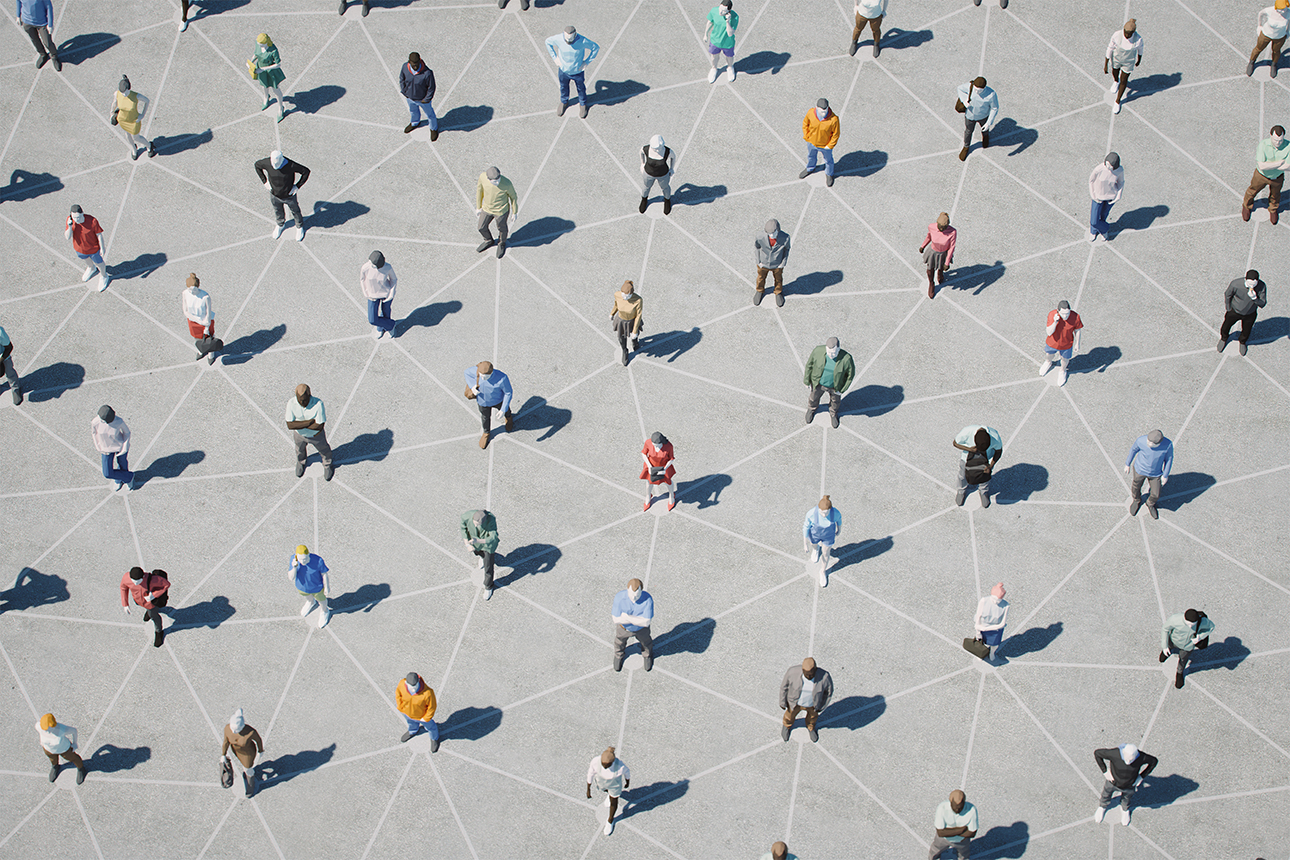Now Is the Time to Reconnect With Your Dormant Social Network
The current crisis presents an opportunity to reconnect with people we have lost touch with or who are physically distant as we experience the same uncertainties.

The lockdowns in cities and countries across the globe due to COVID-19 are likely to last for a fair bit of time. Regardless of when the conditions of social distancing start to relax in locations where the novel coronavirus outbreak is subsiding, most professional events, conferences, and gatherings have already been canceled for the foreseeable future.
For professionals and managers, in-person events offer unique opportunities for strengthening social networks. They do so by reinforcing strong ties by enabling people to bond with others they already have connections with and by creating weak ties, new relationships with others who may have complementary interests, resources, and information. Without the ability to meet with friends and colleagues and to make new connections, it is likely that our social networks will weaken.
But this time stuck at home is also the perfect opportunity to reawaken our dormant ties. These are the underexploited links and relationships that we might have forgotten about with the distance of time and geography — for example, university friends, coworkers from a previous job, former neighbors, or even distant relatives. Existing research has shown the power of reconnecting dormant relationships, especially when individuals share similar experiences.
The current uncertain climate prompts sensemaking — not only by gathering news from our contacts but also by sharing personal updates about how the global situation is affecting us. Now is the time to reopen online discussions that have been left idle and reach out to old friends and colleagues via social media platforms or, perhaps, even an old-fashioned phone call.
The Power of Dormant Ties in Times of Uncertainty
The input we can get via those dormant and weak ties is often more valuable than the input we get from close friends, colleagues, and family. People with whom we have stronger ties often provide redundant information because they are more likely to share the same background and experience. Studies of entrepreneurs have shown that the capacity for creative action is empowered by nonredundant knowledge because it enables innovation and helps people avoid the dangers of conformity.
Sharing with dormant ties also helps dampen the overload of redundant news updates and information overload that occurs in a crisis. Additionally, the pandemic has left many of us with uncertainty over the future of our organizations and work. By exposing ourselves to different ideas and fresh perspectives, we can harness creativity to find potential solutions and paths toward recovery.
Even when the immediate public health crisis is over, and normalcy progressively returns in certain ways, we will still be facing the challenge of a severely damaged economy. But these reawakened social ties might help many of us find our next career move, whether it is a business partnership or job opportunity. Those reawakened ties could also have a snowball effect: They could open the door to other connections you had lost touch with and entire parts of your network that had remained underutilized.
Digital Technologies: A Path to Reawakening Dormant Ties
The use of social media to reawaken dormant ties is nothing new: How many stories of old school friends reconnecting via Facebook have we heard about? In the current context of social distancing, social media platforms and a variety of apps that have surged in popularity — such as videoconferencing software Zoom and video chat app Houseparty — offer accessible means for reconnecting with our long lost neighbors, friends, and colleagues. Those apps offer opportunities for synchronous conversations that mimic as best as possible the experience of informal meetings around lunch or drinks with friends.
In contrast, less novel apps such as Facebook Messenger, WhatsApp, Slack, and Microsoft Teams offer the opportunity to write to each other in between calls. These tools are particularly well suited to a situation like ours. The ability to process others’ messages before answering them (as these types of apps support asynchronous communication) has been found to help us process emotions. Although our lives might have separated us from one another, social media highlights our ability to build empathy and capitalize on the positive emotions of reviving important connections.
By offering a new source of moral support, a platform to share ideas, and access to others’ perspectives in a situation of high uncertainty, reawakening our dormant ties could make us more resilient to both the current situation and what might come our way. Investing in relationships, both old and new, is one way to make use of the time we have at home and engage in meaningful reconnections at a time when our relationships are so vital.








